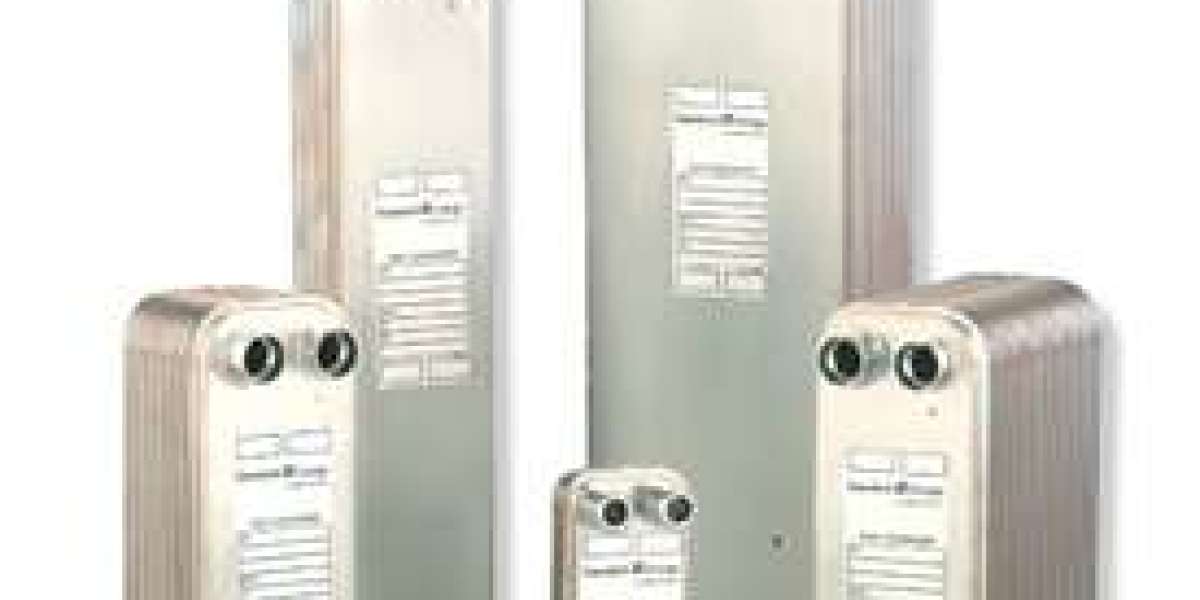Are you in the market for a heat exchanger but feeling overwhelmed by all the options available? Don't worry, you're not alone. Choosing the right heat transfer equipment is crucial to ensure efficient and effective heat transfer. With so many factors to consider such as flow rates, temperatures, materials of construction, and more - it can be challenging to know where to begin. In this blog post, we'll discuss why selecting the proper heat exchanger is essential and provide tips on how to make an informed decision that will benefit your business in the long run. So let's dive in!
Introduction to Heat Exchangers
When it comes to industrial applications, heat exchangers are an essential piece of equipment. They are used to transfer heat between two fluids without them coming into direct contact with each other. This process is important in a wide range of industries, such as chemical processing, petroleum refining, power generation, and more.
There are many different types of heat exchangers available on the market, so it is important to choose the right one for your specific application. The most common type of heat exchanger is the shell and tube exchanger. This type of exchanger consists of a series of tubes that are placed inside a larger shell. The two fluids flow through the tubes and shell, and the heat is transferred between them.
Other types of heat exchangers include plate and frame exchangers, plate fin exchangers, and more. Each type has its own advantages and disadvantages, so it is important to consult with an expert to determine which type is best for your specific application.
Heat exchangers are an essential piece of equipment for many industrial applications. There are many different types available on the market, so it is important to choose the right one for your specific application. Consult with an expert to determine which type of heat exchanger is best for your needs.
Types of Heat Exchangers
There are three primary types of heat exchangers: shell and tube, plate and frame, and air-cooled. Each type has its own strengths and weaknesses that make it more or less suitable for different applications.
Shell and tube heat exchangers are the most common type of heat exchanger. They consist of a series of tubes through which the hot fluid flows, surrounded by a larger shell through which the cold fluid flows. Shell and tube heat exchangers are very efficient, but they are also very bulky and expensive.
Plate and frame heat exchangers are much smaller and more compact than shell and tube heat exchangers. They consist of a series of metal plates sandwiched together, with the hot fluid flowing through the spaces between the plates and the cold fluid flowing on the other side of the plates. Plate and frame heat exchangers are less efficient than shell and tube heat exchangers, but they are much cheaper and easier to install.
Air-cooled heat exchangers are used when there is no water available for cooling. They consist of a series of finned tubes through which the hot fluid flows, surrounded by an air stream generated by fans. Air-cooled heat exchangers are less efficient than water-cooled ones, but they are much simpler to install and maintain.
Factors to Consider When Choosing the Right Heat Exchanger
When it comes to choosing the right heat exchanger for your application, there are a few factors you need to take into consideration. Here are a few of the most important factors to keep in mind when making your decision:
1. The type of fluid you'll be using. Different fluids have different heat transfer properties, so it's important to choose a heat exchanger that's designed for the specific type of fluid you'll be using.
2. The temperature of the fluid. If you're working with fluids that will be at high temperatures, you need to make sure the heat exchanger can handle those temperatures.
3. The pressure of the fluid. Again, different fluids have different pressure requirements, so it's important to choose a heat exchanger that can handle the specific pressure requirements of your fluid.
4. The size of the heat exchanger. You need to make sure the heat exchanger is large enough to handle the volume of fluid you'll be dealing with.
5. The material of the heat exchanger. Some materials are better suited for certain applications than others, so it's important to choose a material that will work well with your specific application.
Keep these factors in mind when choosing a heat exchanger and you'll be sure to choose the right one for your needs!
Benefits of Heat Exchangers
There are many benefits of using heat exchangers in a variety of applications. Some of the benefits include:
-Improved Efficiency: Heat exchangers are designed to transfer heat from one fluid to another without mixing the two fluids. This results in improved efficiency and can lead to significant energy savings.
-Increased Safety: Heat exchangers can help increase safety by keeping dangerous fluids isolated from each other. This can prevent accidental release of hazardous materials and protect workers from exposure to harmful substances.
-Longer Equipment Life: By using a heat exchanger, you can extend the life of your equipment by preventing corrosion and scaling that can occur when two different fluids mix together.
Common Applications for Heat Exchangers
Industrial heat exchangers are used in a variety of applications to transfer heat between two or more fluids. The most common type of heat exchanger is the shell and tube heat exchanger, which consists of a series of tubes that contain the fluid to be heated or cooled, and a shell that surrounds the tubes.
Shell and tube heat exchangers are used in a variety of industries, including power generation, chemical processing, oil and gas production, HVAC, and food and beverage processing. They are also commonly used in refrigeration systems.
There are many different types of shell and tube heat exchangers, each designed for specific applications. The most common types include:
- Plate and frame heat exchangers
- Shell and tube heat exchangers
- Air-cooled heat exchangers
- Brazed plate heat exchangers
Maintenance and Troubleshooting Tips
If you are using a heat exchanger in your application, it is important to choose the right one for the job. There are many different types of heat exchangers, and each has its own advantages and disadvantages. Here are some tips to help you choose the right heat exchanger for your application:
- Consider the type of fluid you will be using. Different fluids have different properties, and this will affect the performance of the heat exchanger.
- Consider the operating conditions. This includes things like temperature, pressure, and flow rate.
- Choose a material that is compatible with the fluid you are using. Some materials are more resistant to corrosion than others.
- Make sure the heat exchanger is sized properly for your application. If it is too small, it will not be able to handle the heat load. If it is too large, it will be inefficient.
- Choose a reputable manufacturer who has experience in making heat exchangers. This will ensure that you get a quality product that will last for many years.
Conclusion
Choosing the right heat exchanger for your application is an important decision that can have a lasting impact on your system. By understanding the different types of heat exchangers and their strengths and weaknesses, you'll be better equipped to make an informed decision about which one will best meet your needs. Ultimately, it's essential to take into account all factors when selecting a heat exchanger so that you can ensure optimal performance in whatever environment or conditions you are working in.
 " class="wow_main_float_head_img">
" class="wow_main_float_head_img">




